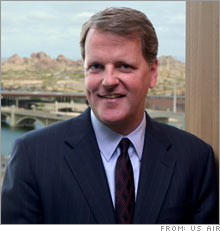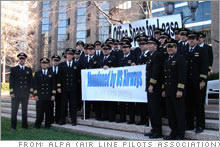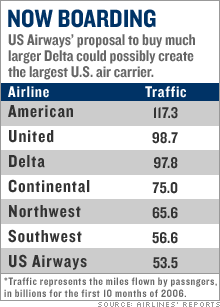The man reshaping the airline industryUS Air CEO Doug Parker's bid for Delta is just the latest in a series of bold moves in the 45-year-old executive's turbulent career.NEW YORK (CNNMoney.com) -- US Air CEO Doug Parker, who enjoys bungee jumping and running with the bulls in his "spare time," is ready to take the airline industry along on his next wild ride. The shakeout in the airline business since 9/11 has catapulted Parker from being the newly appointed CEO of a small carrier, America West, to being the longest-serving chief executive of a major U.S. airline - all in little more than three years.
|




